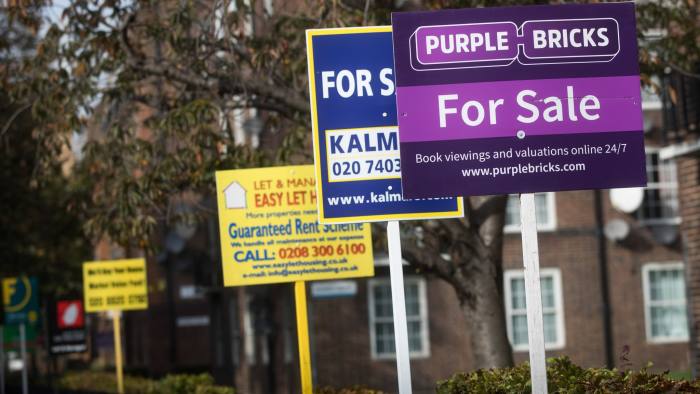UK Housing market set to stall next year, says Halifax
Dec 28, 2016
Transactions likely to fall as household finances come under pressure
House prices are expected to rise by as little as 1 per cent over the next year, according to Halifax.
The high street lender predicted that the total level of house sales will shrink in 2017 as declining economic conditions limit people’s spending power, discouraging them from buying a home or moving.
Martin Ellis, Halifax’s housing economist, said unemployment is also likely to rise. “This deterioration in the labour market, together with an expected squeeze on households’ spending power — as inflation picks up and outpaces earnings growth later in the year — is likely to curb housing demand.
“These factors, combined with increasing affordability constraints, particularly in London and the southeast, are likely to result in a further easing in annual house price growth during the coming year, continuing the trend seen since the spring of 2016.”
Halifax’s index for November showed house prices rising at an annual rate of 6 per cent, down from 10 per cent in March, when prices surged ahead of the introduction of a stamp duty surcharge on the purchase of second homes and buy to let.
For next year, it predicts annual house price inflation of between 1 and 4 per cent by the end of 2017. The range of the forecast was wider than usual, it said, because there was a high degree of uncertainty over the outlook for the economy.
Some factors would nonetheless continue to bolster house prices, it added: a continued shortage of property for sale, as well as low interest rates on fixed term and tracker mortgages, would cushion the impact of any economic deterioration.
London’s rampant growth has tailed off, falling from an annual 14.5 per cent at the end of 2015 to 7.9 per cent for the three months to September. House price growth in the capital is still rising at a higher rate than the national average of 5.7 per cent in the third quarter, but Halifax said London is now the only region of the UK where mortgage affordability is running below its long-term average.
“This relatively adverse affordability position suggests that price growth will slow more sharply in London than elsewhere during 2017,” Halifax said.
Doubt was cast on official rates of home ownership in separate research from Resolution Foundation, a think-tank, which analysed government data to conclude that a 64 per cent rate of home ownership is a significant overestimate. The think-tank said official statistics focus too heavily on households, when a more telling metric is the proportion of people who own their own home.
Looking at the proportion of families owning (which it defined as single adults or a couple plus any dependent children) it found only 51 per cent owned their home. It also argued that official data understated the number of families living in private rented accommodation. “There are about 6.3m families living in the private rented sector today compared to 4.9m households,” it said.
Of these, house-sharing millennials aged between 20 and 31 account for a growing proportion, but Resolution Foundation also found rising numbers of families renting alone, particularly outside London, and more adult children living with their parents.
Source: Financial Times
